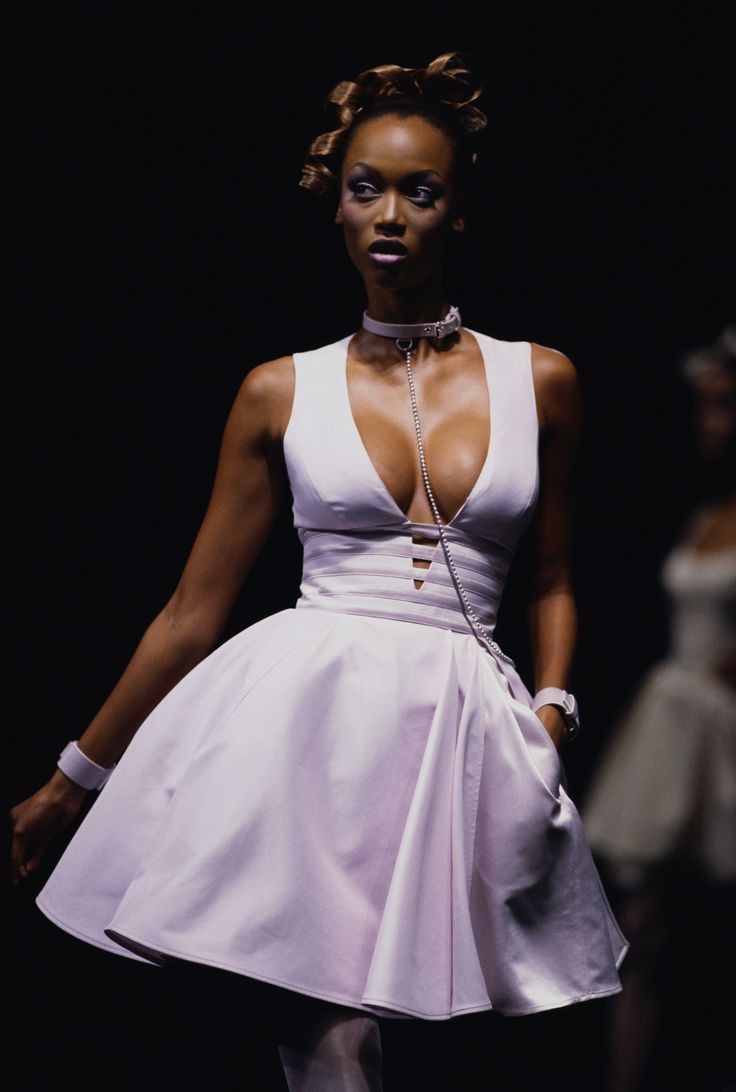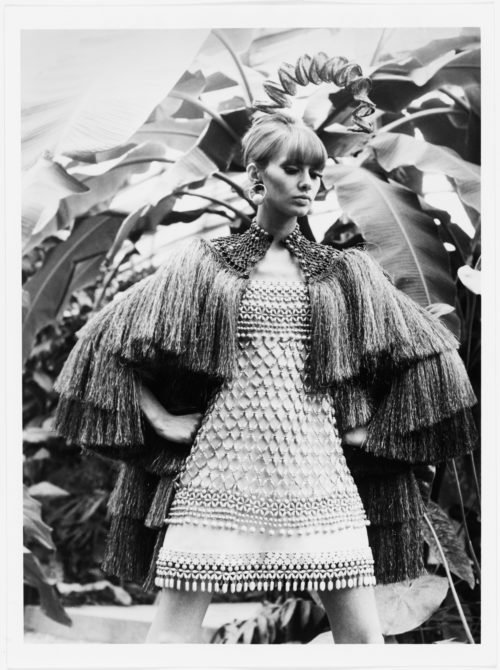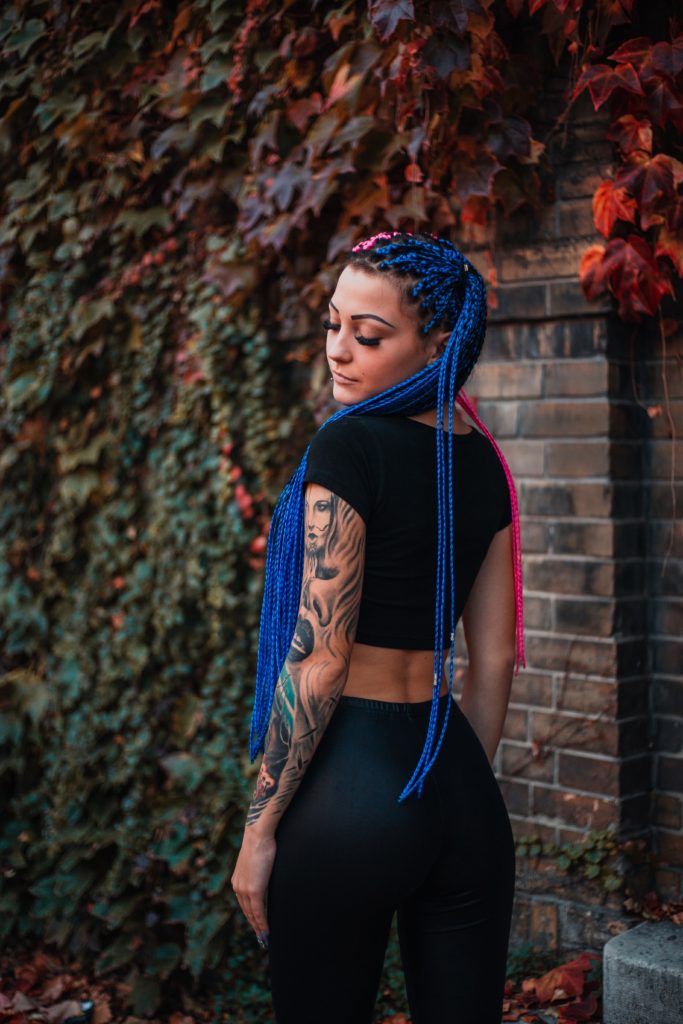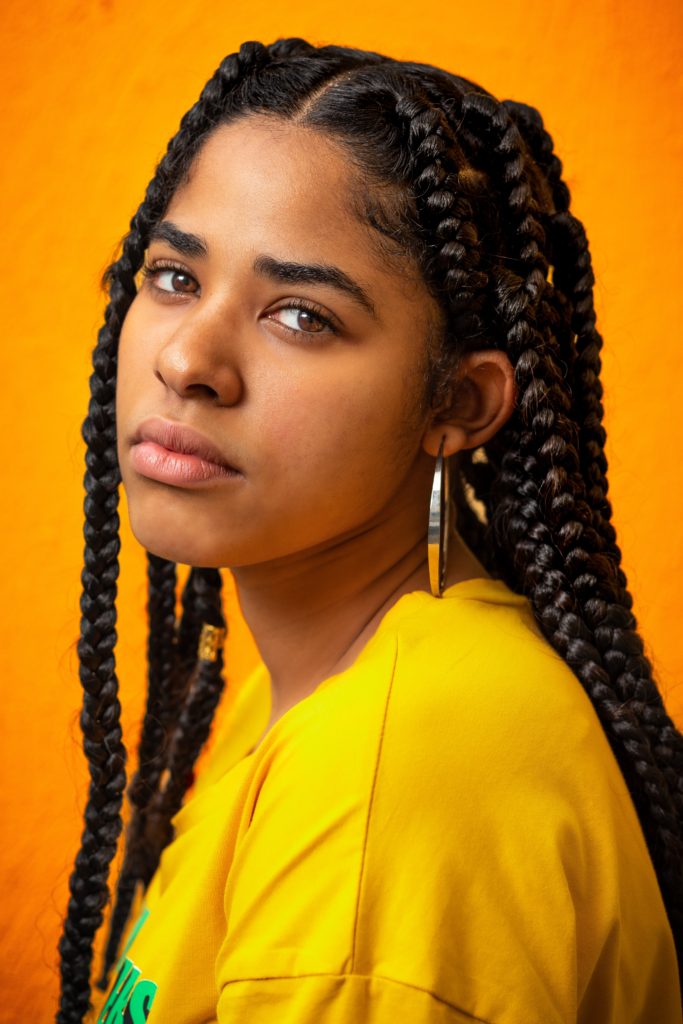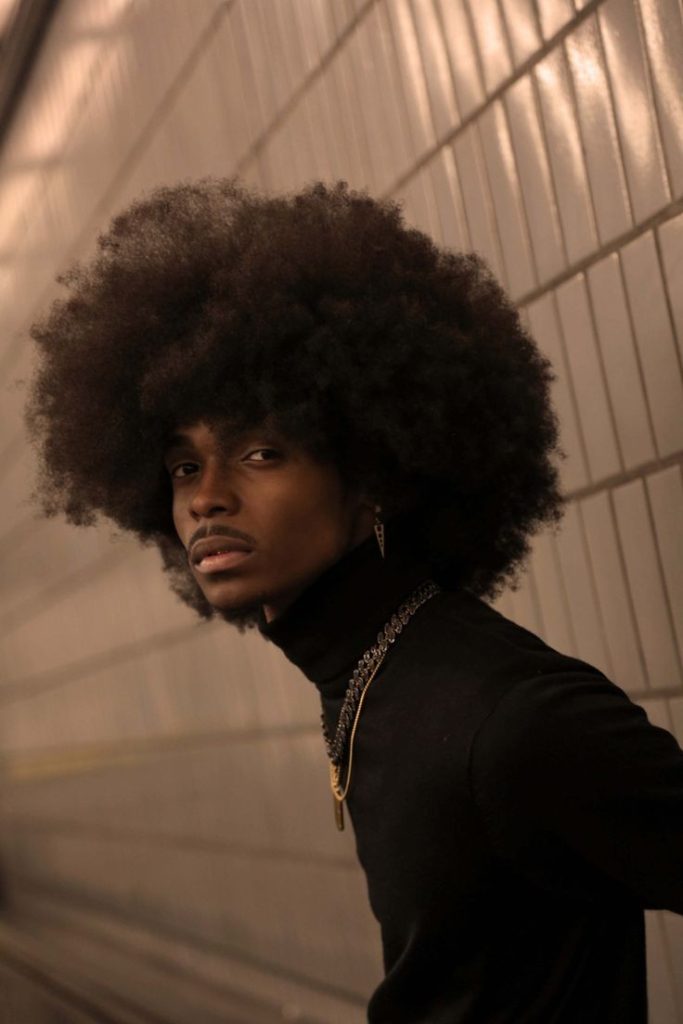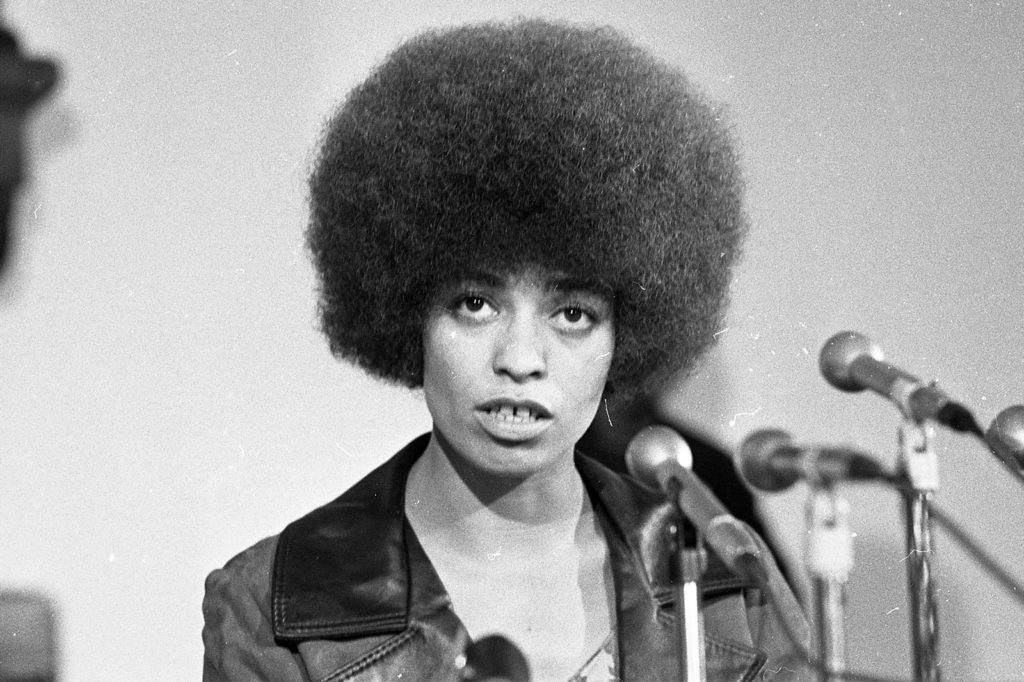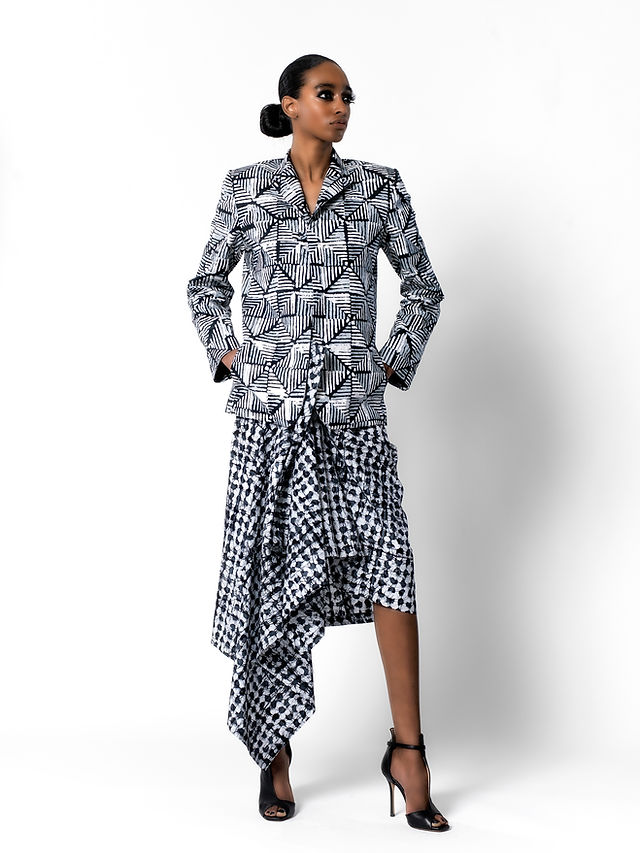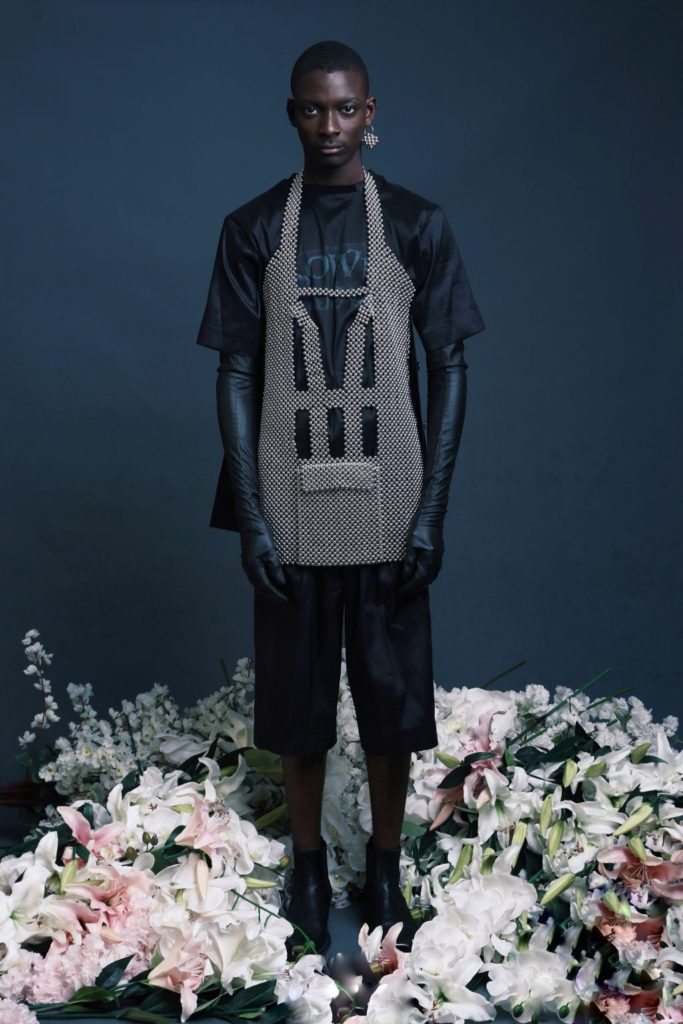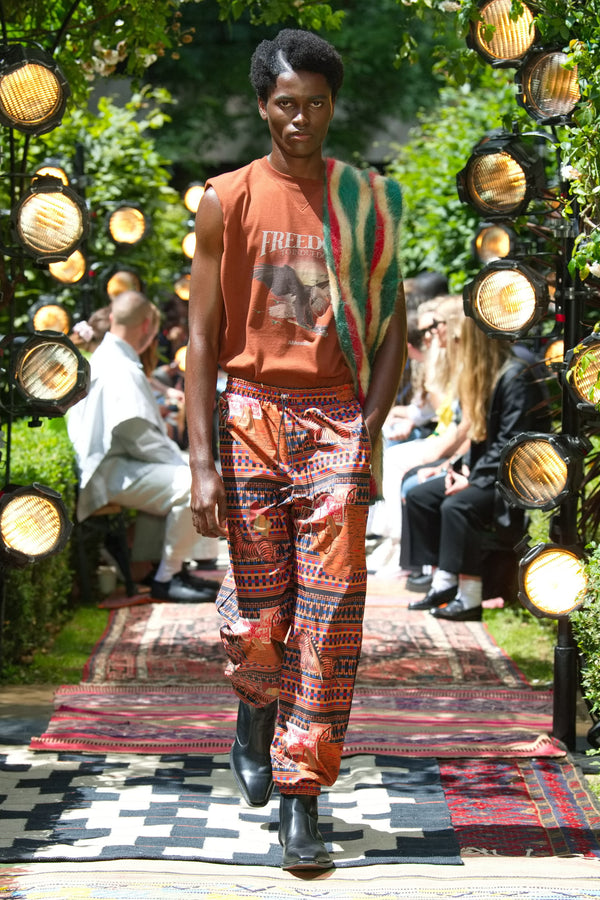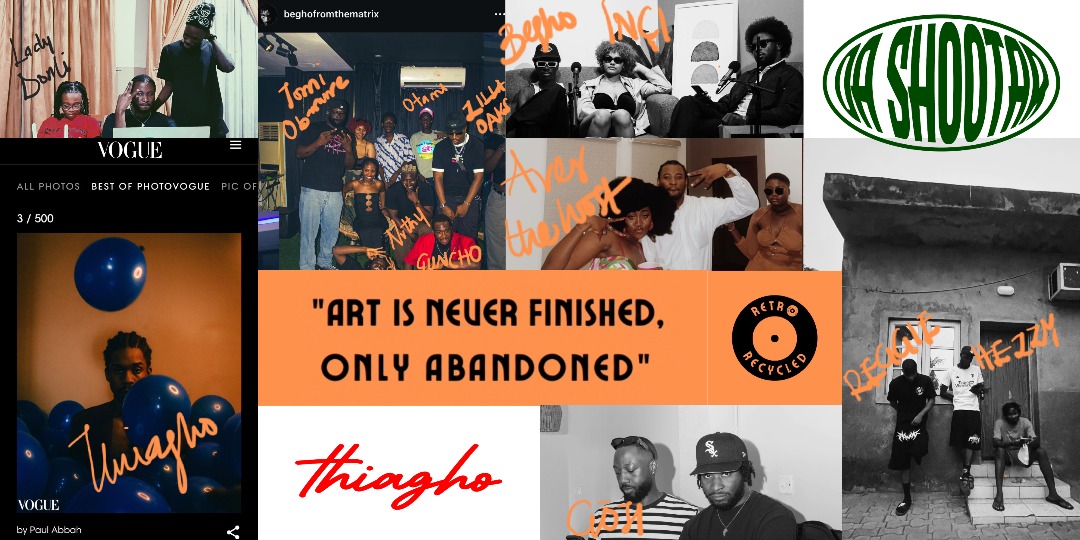by Adeyinka A. Ayomitide
There is history woven into every detail of our African culture: the delicate and intricate textiles, the usage of buttons, seashells, and beads to connote a person’s status and wealth. Our history, although rarely praised, is a great source of inspiration to contemporary fashion, impacting greatly every aspect of life, most especially the fashion industry. Every clothing tells a story, from the weaving of cotton to tie-dyeing an attire. Much has been learned from African culture as can be seen in Yves Saint Lauren’s Spring-Summer 1967 collection, imitating the textures and materials used by the Africans.
Before the colonization of most African countries and the age of modern wear, Africans wore very little clothes due to the hot climate of our continent, dressing in skins, fur and hides. However, since the 15th century, with the voyage of the European sailors, settling on the shores of African coasts and enabling trade between both races, we have since developed our own statements through our clothing and hairstyles, by imbuing our cultural existence in the very fabrics.
Fashion is dynamic and forever flexible but when it comes to trendy fits and influence, Africa has been imitated and has influenced many cultures beyond what others are willing to admit. There are many ways that our African culture has preserved our culture, attracting the world into participating in several of them. Going beyond African dresses, there are African culinary dishes that are craved internationally (Jollof rice), the successful Afrobeats music is not only being sampled worldwide but has made many artists with different cultures collaborate with African artists.
Brief History Of African Fashion And Culture
In order to understand how far our African culture has and is greatly impacting today’s fashion scene, we have to compare what the African culture was before the colonization of the Westerners. Although not all of Africa was colonized, a significant number of countries were and these countries had their own unique African dress style.
Early Age
Before the Europeans came into Africa, the common dress materials were animal skins and long robes wrapped around the women’s genitals while the men barely wore much clothing as the continent’s climate did not demand warm clothing. Along with the furs, the African men and women had body paints and tribal marks covering their bodies to describe the traditions and history of their individual tribes. Some of the tribes who did this were the Yoruba of Nigeria, Karo tribe of Ethiopia, Nuba tribe of Sudan, and Xhosa tribe of South Africa.
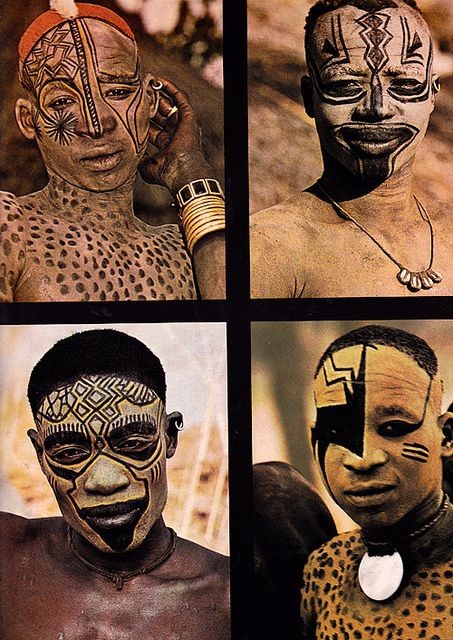
Present Day
Although most of the African fashion attire now seen worldwide originated from the influence of the Westerners who imposed their dressing style on African women and men. We were able to keep their history intact by learning skills like weaving and preserving their cultures in our African outfits.
Trending African Fashion Styles
The colour “Black” is beautiful, ageless, unique, and special which is why despite our historical experiences, our history can’t be erased from existence. Many Black/African fashion designers of the 20th and 21st centuries have chosen to trace their ancestral roots in order to learn more about their culture and show the world that black truly does not crack. These are the trending African fashion styles that have been assimilated by the world.
Hairstyles
- Braids: Braids have been said to have been around for 5000 years, dating back to as early as 3500 BC in Africa. The sleek, beautifully woven hairstyle was popular among African women. Some sources claim that hair braiding may have originated in Namibia before being introduced to the whole world. The history of braids has deep stories within them, with each braid style and technique unique to a tribe and country as it announced a person’s socioeconomic status. This African tradition spanned for thousands of years and by the 1900s, every African man, woman and child was accustomed to braiding their hair. With how welcoming the African culture is today, it isn’t uncommon to find a non-African woman or man braiding their hair as they embrace the African culture. Braids are a unique and fantastic hairstyle that the world has adopted into its fashion trends.
2. Afros: This uniquely African fashion hairstyle was said to have begun as a form of protest against the European racists/slavers. After the capture of Africans, they were forced to dress and present themselves (their dressing) as palpable as the Europeans’ fashion. Among the many things expected of the Africans, their hairstyles were expected to be combed and styled just like the Europeans. Back in the late 1950s, a group of African-American women who were students and civil rights activists aimed to fight against European oppression by un-straightening their hair and expressing pride in their race. The “close-cropped” hairstyle eventually grew into a big, round shape and by the 1970s, the Afro was a symbol of black pride and was worn by all Africans. Presently, Afros are being worn not only by Africans.
Fashion Designers
These are the trendsetters who have rekindled their native roots and created magic with their innovations, environment, culture and history. With popular and talented fashion designers who have showcased African clothing and African dress style to the world, it is impossible for anyone with a taste for high-end fashion to not be drawn to African outfits. Skilled and successful African fashion designers like Priya Ahluwalia, Imane Ayissi, and Orange Culture by Adebayo Oke-Lawal, to mention a few, have gone the extra mile in getting their braids to be recognized as they have
African fashion designers draw from distinctive inspirations, channelling their heritage into their brands, putting it out into the world for mass consumption and gaining a track load of fans, followers and interested customers. The African print dress has gone beyond the African continent, interwoven itself into mainstream Hollywood movies which garners a large following worldwide.
Fashion Models
It is no news that Black is gorgeous, talented, versatile, unique, and enthralling. This is one of the many reasons why African models have been dominating the modelling industry throughout the world. With famous trailblazing black models like Naomi Campbell who is one of the first original supermodels in the world, Tyra Banks, Jourdan Dunn, Chanel Iman, and many more, these successful fashion models paved their way in the fashion world, being the best at their games and making everyone who can afford them, request for their services. You can rarely find a fashion show without black fashion models walking the runway.
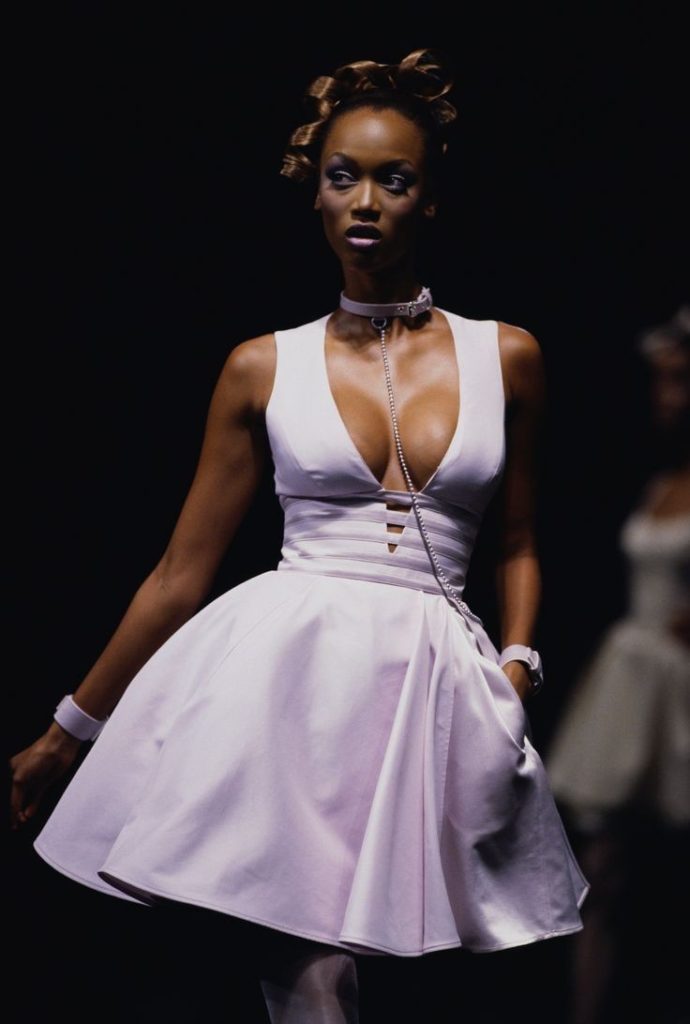
Conclusion
The African fashion style has mirrored the evolution of its people, detailing centuries of history and experience woven into the very fabrics of our lifestyle today. Black is being celebrated as more people are inspired by the African culture and the infinitesimal wealth of talents. Fashion is dynamic and forever flexible but when it comes to trendy fits and influence, Africa has been imitated and has influenced many cultures beyond what others are willing to admit.

